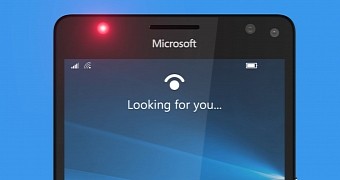Microsoft is one of the companies that are trying to replace passwords not only with more secure authentication systems, but also with solutions that are more convenient and easier to use.
One such example is Windows Hello, which is being used to protect Windows 10 devices, and Microsoft is highlighting its efforts to increase adoption of biometric-enabled devices in a lengthy blog post detailing its collaboration with the FIDO (Fast Identity Online) alliance.
Microsoft says Windows Hello has already proved a successful security system, revealing that nearly 70 percent of Windows 10 devices with such capabilities are choosing Windows Hello over traditional passwords.
Ironically, Windows Hello proved easier to hack as part of an experiment conducted by German security researchers, though the latest versions of Windows 10 introduced new features that prevent photo spoofing if the necessary hardware is available.
Biometric authentication all the way
Microsoft also discusses the advantages of replacing passwords with apps like the Microsoft Authenticator which is available on Android and iOS to provide easy authentication with a PIN or fingerprint.
“We are encouraging users to try it, and see for themselves that it is easier to use than passwords,” says Rob Lefferts, director of program management for Windows Enterprise and Security. “I think one of the fears that people have is that new technology is just going to be more complicated, and not realize that we’ve pushed to make it simpler and better.”
Microsoft eventually emphasizes its commitment to helping customers migrate to what it calls a password-less world, delivering alternative solutions to secure devices.
“It will take time for all the parties, all the important websites and all the important line-of-business applications to adopt this technology, and it will take even more time for users, customers and organizations to make the cultural shift required so that people can really live in this new world,” he says. “But we have the blueprint for accelerating the move away from passwords. The key to success is making sure that the user experience is actually easier and better than what they have with passwords today.”
Microsoft isn’t the only one that’s pushing for biometric authentication, as other tech giants are also investing in such systems, including long-time rival Apple. Facial recognition is one of the highlights of the company’s latest iPhone model, with the same system to be expanded to the entire lineup next year.

 14 DAY TRIAL //
14 DAY TRIAL //